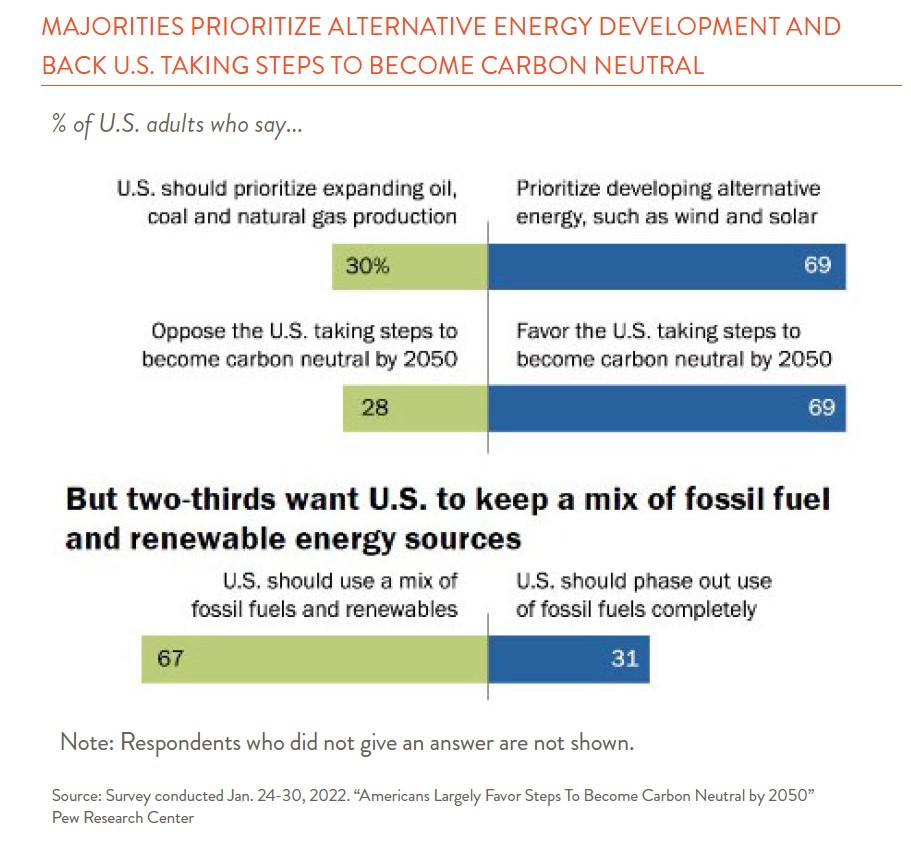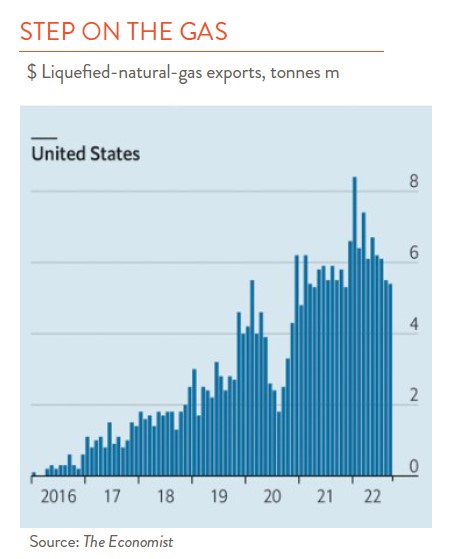I am talking about our relationship to fossil fuels. Most Americans favor taking the steps to become carbon neutral. But at the same time a majority of Americans (see chart below) want to keep a mix of fossil fuels and renewables.

Where you stand on this depends very much on where you sit. Democrats, especially more liberal ones, favor development of renewables. A majority of Republicans are just as vociferous in favor of developing more fossil fuels. Some Republicans question the whole climate change thesis while others do not want to risk disruption to the economy.
So, a classic political standoff – arguments and handwringing on both sides. California wants to ban the sale of new gasoline cars after 2035, and they are aiming to phase out the use of natural gas furnaces by 2030. Over 15 states are following the lead of California on energy policy.
On the other hand, America has a lot of fossil fuels, and this makes the shift to renewables more difficult and more costly. Natural gas is America’s big fossil fuel strength. Two of the biggest natural gas fields in the world lie in the shale beneath Appalachia. The Economist estimates that America has reserves of natural gas that will last a century at current consumption levels.
Natural gas is cleaner than coal but at the same time the production of natural gas involves fracking, which is controversial, and the primary component in natural gas is methane, which is quite harmful to the environment. Our natural gas may be cheaper than the rest of the world’s but there is a cost to all this. So, no free lunch.

One area where America is benefitting today is the globalization of natural gas. Big chemical plants from Europe and Asia are setting up plants on the Gulf Coast to take advantage of our cheaper gas. Multibillion dollar plants have been built in Texas and Louisiana to export gas. At first the gas went mostly to Asia, but now two-thirds of our LNG goes to Europe.
No one knows how long this will last. LNG terminals are enormously expensive. Banks will not lend to them unless they have 20-plus year contracts from buyers. European utilities are reluctant to sign up because they just don’t know what the energy future looks like. Some experts think that most of our homes and cars will still be powered by fossil fuels in 2050. Other experts think renewables will develop more quickly.
Americans want their cake and to eat it too. We want a cleaner environment, but we are unwilling to pay the short-term cost to abandon fossil fuels. Governments need to offer greater incentives and/or enact tougher energy restrictions if they want a faster transition. But there’s no consensus on this today.